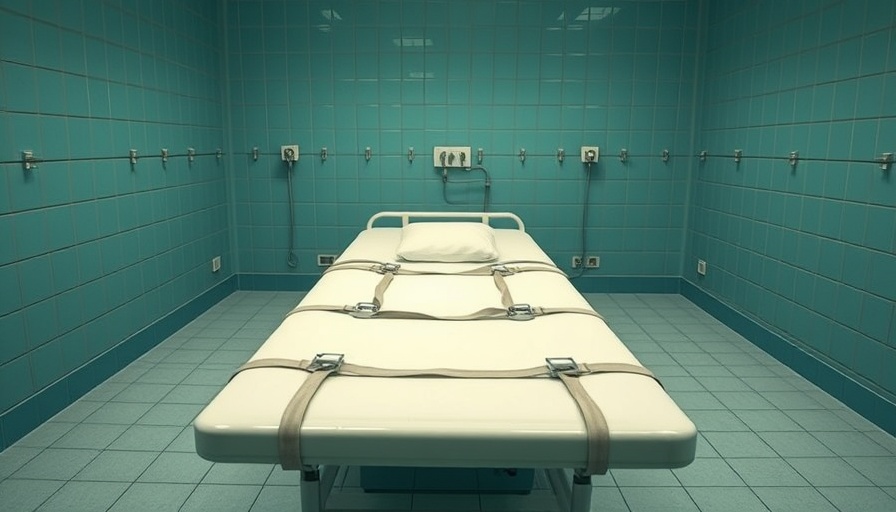
The Impending Execution of Moises Mendoza: A Tragic Tale
On April 23, 2025, Moises Mendoza is scheduled to become the third individual executed by the State of Texas this year. This grim milestone serves as a reminder of a continuing debate surrounding capital punishment in America, particularly as Mendoza, after spending over two decades on death row, faces death for crimes that shook the community of Farmersville. The case has stirred public emotions and renewed calls for an evaluation of the effectiveness and morality of the death penalty.
A Closer Look at the Case
Mendoza’s journey through the justice system began in 2005 when he was convicted of murdering Rachelle Tolleson, a tragedy that left a lasting scar on her family and community. The nature of the crime, which included kidnapping and aggravated sexual assault, paints a graphic picture of the violence that unfolded. As the case has progressed over time, many have raised concerns regarding the fairness of Mendoza's trial.
One of the critical areas of contention is the testimony of Mark Vigen, a psychologist who was meant to support Mendoza's defense but ended up branding him as a dangerous individual. This testimony possibly played a significant role in the jury's decision to impose the death penalty. Critics have pointed out that Mendoza's trial was flawed, noting that a favorable expert witness became a liability. This raises serious questions about the effectiveness of legal representation in capital cases.
The Public's Perception and Support
In stark contrast to other recent Texas executions that prompted significant public support and media attention, Mendoza's impending death has attracted little to no outcry. Despite some online petitions calling for a halt to the execution based on a general aversion to capital punishment, the urgency seen in other cases like Robert Roberson and David Wood, whose executions were delayed due to claims of innocence, is notably absent.
This lack of public backing may reflect the gravity of the acts for which Mendoza was convicted, painting him in a negative light. Conversely, this situation prompts concern about the disparity in public and legal support for individuals on death row.
The Ethical Implications of Capital Punishment
The execution of Moises Mendoza ignites vital discussions around the ethics of capital punishment itself. Advocacy groups like the Catholic Mobilizing Network argue that every execution degrades the inherent dignity of human life and perpetuates a cycle of violence. Their call to action implores individuals to challenge the practices that allow this state-sponsored violence to persist.
The decision to execute an individual is final and irreversible, raising the stakes of morality within the justice system. Given Mendoza’s claims of mistakes in his past and the inherent complexities of criminal behavior, is the death penalty truly a fitting punishment or a mechanism of societal retribution that can lead to irreversible tragedy?
Future Implications and Continued Advocacy
As Mendoza's execution date approaches, this case exemplifies a pattern wherein certain convicts garner significant support, while others languish in silence. The future of capital punishment in Texas hinges on societal attitudes toward justice, retribution, and rehabilitation.
Advocates for reform continue urging lawmakers to reconsider the application of the death penalty, citing disparities in representation and the potential for wrongful convictions. The narrative surrounding Mendoza is a stark reminder of the challenges faced by individuals within the justice system, those seeking justice for victims, and advocates for policy reform.
As the clock ticks down to Mendoza’s scheduled execution, the conversation must evolve beyond individual cases towards a comprehensive assessment of capital punishment’s place in modern justice. Are we equipped to dispense such a final verdict on life, or is it time to reconsider how we seek justice in America?
 Add Row
Add Row  Add
Add 




 Add Row
Add Row  Add
Add 


Write A Comment